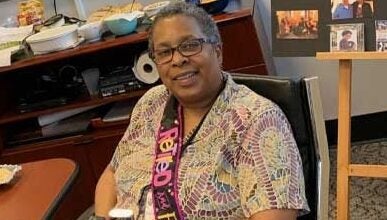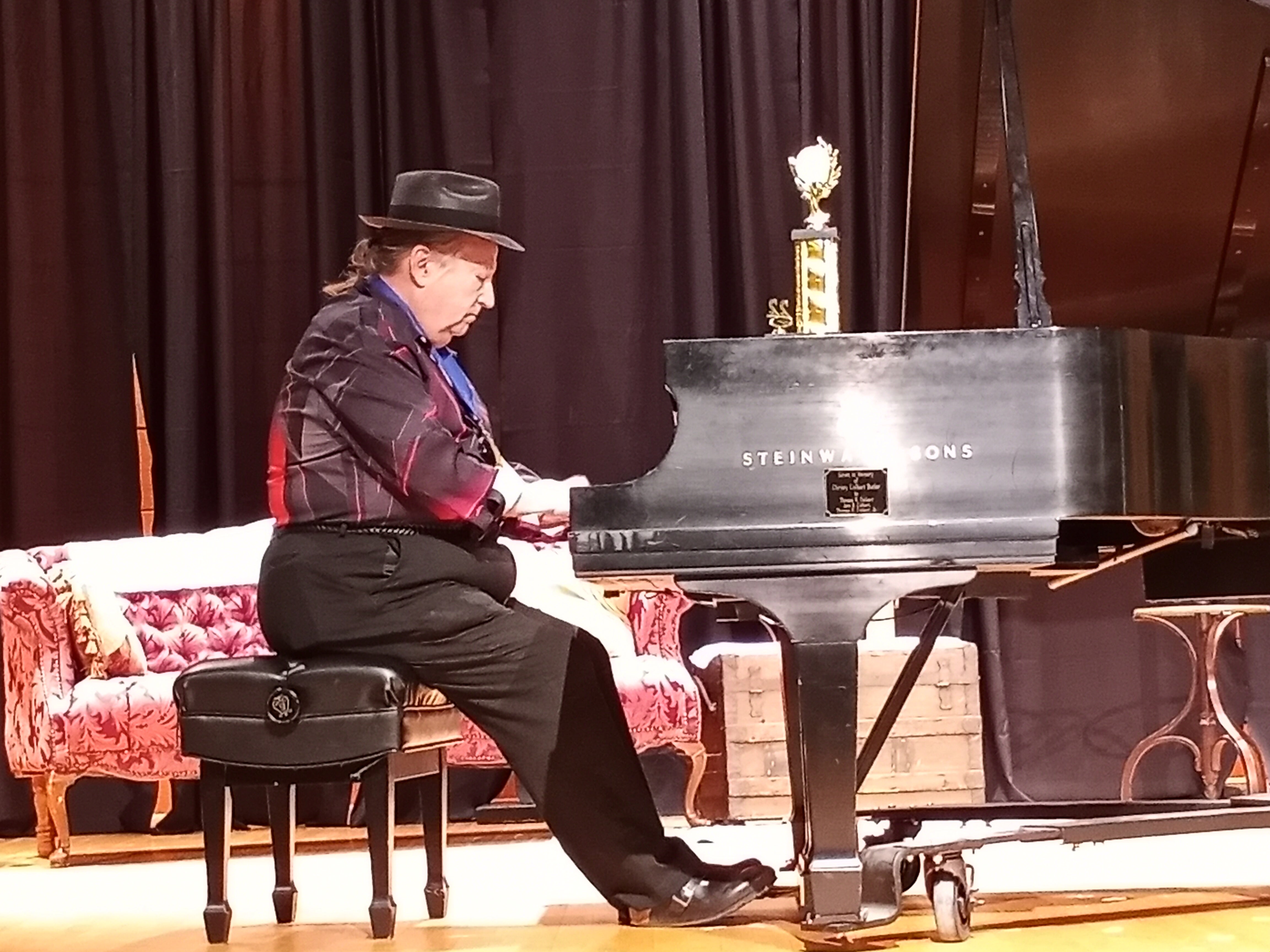Oxonians remember David Bowie
Published 12:00 pm Tuesday, January 12, 2016
In the early 1980s, Wayne Andrews and one of his friends learned that musician/artist David Bowie had an office in New York.
“Using our belief that nothing that bad can really happen to high school students, we hatched our plan to try and gain access to his office,” Andrews said. “No middle of the night break-in. We just decided that if we had papers in our hands, pointed and walked, we could get past some doors.”
Andrews said they never thought they would actually find Bowie sitting in an office.
“It was more that, having this information, we had to try,” he said. “ . . .So, while our other friends waited on the sidewalk of this building in New York, my high school friend, Paul Romano, and I entered the elevator to the 20th floor.
“Our plan was simple — just keep repeating that we had been sent to inspect the windows. We had some paper and pencils in our hands and planned to just keep pointing at windows.”
Andrews said they made it through the waiting room, around the desk of the receptionist and about three steps.
“I may never have met David Bowie,” he said, “but I have been thrown out of a very nice office by some sort of guard that worked in his office. Today, that will just have to be close enough.”
Andrews, who is now director of the Yoknapatawpha Arts Council in Oxford, said he was surprised to hear of the death of David Bowie, who reportedly died of cancer Jan. 10 in Manhattan. Andrews is one of many Bowie fans mourning the loss of a unique talent.
“I was very surprised to hear about his death, as I had just been reading Friday about the newly released record ‘Blackstar,’ said Andrews, who can’t recall when he became a Bowie fan. “I can remember ‘Diamond Dog,’ ‘Young Americans’ and ‘Ziggy Stardust.’
“I think his legacy is that, as an artist, he explored and was not confined,” Andrews said. “I think Bowie fans do not cling to a song, but felt part of a journey.”
First crush
Melanie Addington, director of the Oxford Film Festival, said she was a fan by age 12 when “Labryinth” came out.
“But then when I first saw him as Jareth in Labryinth, I developed my first real crush, and became hopelessly devoted to him,” she said. “I was always a super fan of his music and acting after that.
“I just feel like Bowie’s music has sort of been a major part of the soundtrack to my own life, and I can’t really remember a time when it wasn’t.”
Addington said she learned of his death Monday morning at 4 a.m. when she awoke and checked Twitter.
“I was stunned at first and thought I had misread,” she said. “Then it sort of dawned on me, and I sat on my couch and cried before reading anything and everything I could find online about it. I’m still pretty devastated.”
Addington said Bowie’s greatest gift was simply being himself.
“We all just got lucky enough to enjoy that for a little while,” she said.
Huge impact
Daniel Lee Perea, a local musician and media producer for PMQ Pizza Magazine, said his first Bowie experience was the film “Labyrinth.”
“That movie (and the soundtrack) is a masterpiece conceived and directed by a Mississippian,” he said. “I feel this state should really take more ownership of that.
“Bowie really understood that rock-and-roll is an act, possibly more than anybody else,” he said. “Where artists strive for authenticity, Bowie throws it out the window in favor of one mask after another. If rock is an opera, he is Pavarotti.”
Perea said he also was shocked by news of Bowie’s death.
“It seemed so unreal that I completely forgot it happened,” he said, “and when I remembered, it hit me all over again. So now I’ve mourned him twice. I definitely cried.
“I’m trying to embrace that I shouldn’t be sad that he’s gone, but happy he was alive. I take some comfort in knowing only David Robert Jones has passed away.
“David Bowie, Ziggy Stardust, Aladdin Sane and the Thin White Duke are immortal. They can never die.”
Perea said Bowie’s life legacy is his ability to transform into persona after persona.
“I think he opened the door to the idea that you can be anybody and everybody,” he said. “I’ve made creative works with a goth persona, punk persona, noir persona, greaser persona, and maybe tomorrow, I’ll try being a hip-hop artist. Bowie made that possible.”
An inspiration
Louis Bourgeois, executive director and editor of VOX Press in Oxford, said he came to Bowie late in the game.
“I didn’t really start paying attention until my then-9-year-old daughter, became a fan of his album ‘Ziggy Stardust and the Spiders from Mars,’” he said.
Bourgeois said he was sad because he thought his daughter was going to be devastated in the same way he was when, at the age of 10, he suffered through the death of John Lennon.
“But my daughter was not devastated,” he said. “She took a rather healthy view about Bowie’s death by saying he lived his life with great purpose and made millions of people happy.
“For me, I’m fascinated by the number of musicians who claim David Bowie was their main inspiration and the musician they themselves learned the most from. Seems that David Bowie was the father of many musical forms.”
Different is cool
Rick Hynum, PMQ editor-in-chief, said he grew up hearing Bowie’s hits on Top 40 radio in the ’70s, including “Space Oddity” and “Changes.” But he didn’t really discover him as a true artist until the MTV era.
“His songs were highly visual and evocative, and his natural theatricality and sense of showmanship was a perfect fit for video,” he said. “Sometime around that point, a roommate had the old ‘Ziggy Stardust and the Spiders From Mars’ album, and that’s when I really tuned into Bowie and discovered ‘Diamond Dogs’ and other classics.
“Most of it was already old by the time I first heard it, but it felt new to me — songs like ‘Starman’ and ‘Suffragette City’ and the amazing ‘Rebel Rebel.’
“Really out-there, avant-garde stuff with a melodic sensibility — there was no one else like Bowie. He could make these weird, off-kilter songs and then sell the hell out of them.”
Hynum said “Modern Love” still blows him away.
“It feels every bit as fresh today as it did back around 1985 or so,” he said.
Hynum said he’s enjoyed reading the Bowie tributes his friends have posted on Facebook.
“But I don’t feel sad about his death because, man, he lived one heck of a life,” he said, “and he lived it the way he wanted to live it. He created great music and great art. He became a legend and practically a rock-and-roll god in his lifetime.
“I want to believe that it was a fulfilling life for him, and I hope he recognized, to some extent, just what he meant to so many people. If so, then there’s no real reason to be sad. We should celebrate his life.”
Hynum said Bowie was first and foremost an artist.
“He proved that rock music could be far more than ‘a good beat that you can dance to,’” he said. “He brought artistic vision and innovative themes to every album he created. He didn’t invent the concept album, but he helped perfect it.
“And without Bowie and his propensity for reinvention, creating new personas and the art of artifice, these image-driven dance-pop celebrities like Madonna and Lady Gaga may never have made it past the one-hit-wonder stage. But I also hear Bowie in a great deal of today’s rock music, from Coldplay to Radiohead.”
Hynum said he thinks, ultimately, Bowie will be remembered for “making it cool to be different, to be aggressively different, to be weird and to embrace your weirdness.”
“I think he spoke to us all in that way. Most of us may look ‘normal,’ but we all feel weird on the inside. We all think we’re freaks. Bowie owned his weirdness.”






